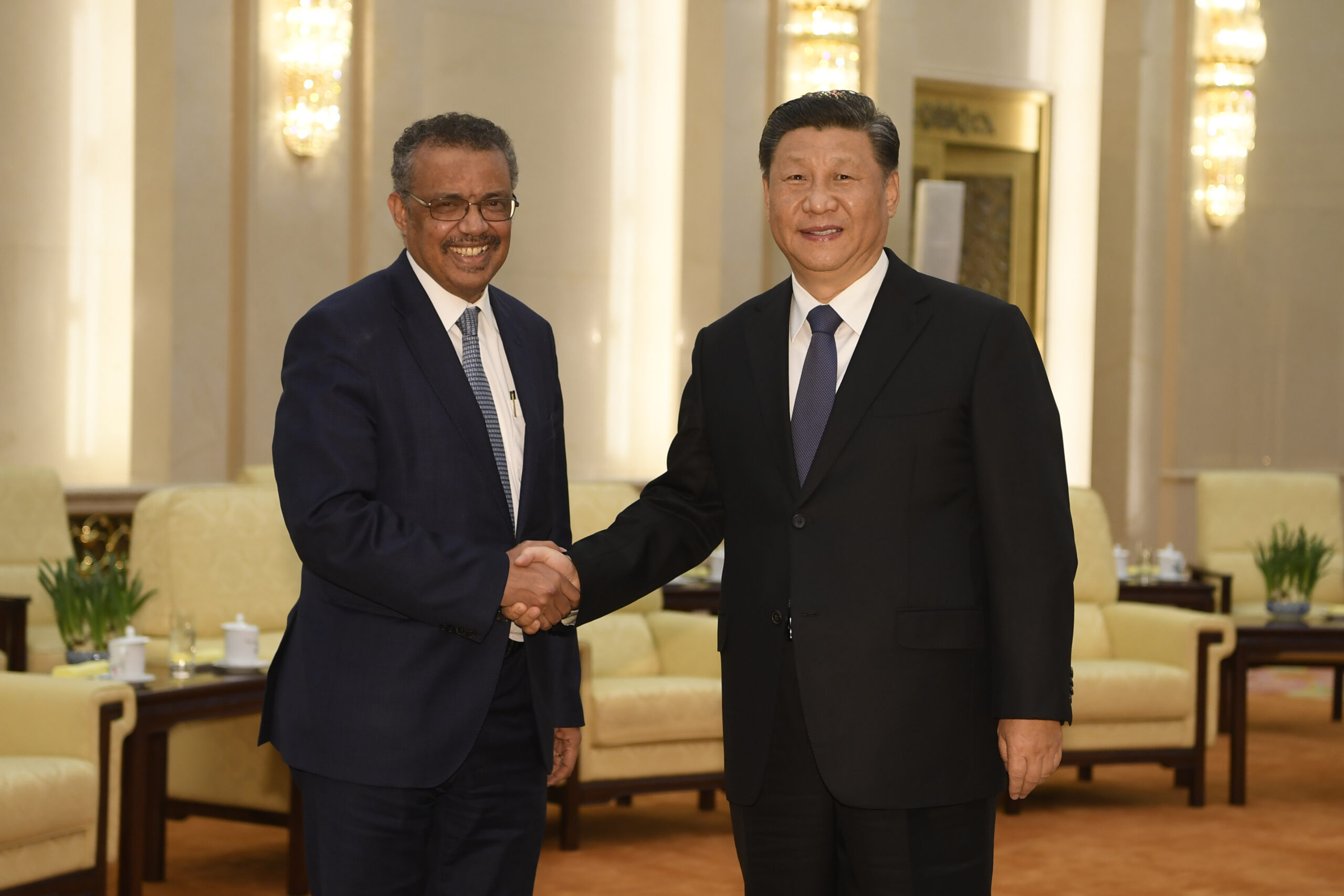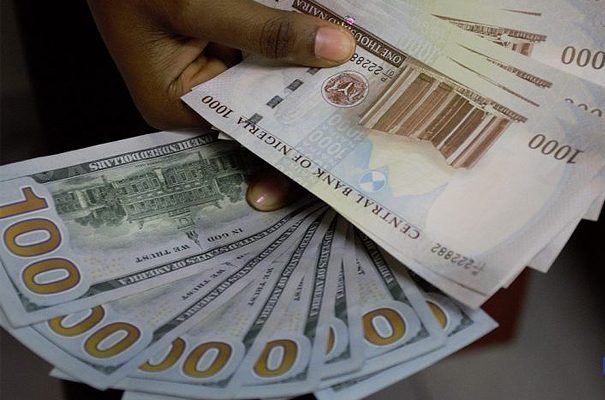Tedros Adhanom, director general of the World Health Organization, left, shakes hands with Chinese President Xi Jinping before a meeting at the Great Hall of the People in Beijing, Tuesday, Jan. 28, 2020. (Naohiko Hatta/Pool Photo via AP)
Just 365 days ago, life was still very much normal. You could visit virtually any country, shake hands, and you probably never wore a mask — except your profession demanded such.
A year after, the world is entirely a different place. Ideas unknown to the 21st-century man became global trends — words like “lockdown”, “social distancing” became the global buzz. But how did we get here? TheCable brings you a short review of a virus’ journey from a small city in China to every corner of the world.
On this day — December 31 — in 2019, China informed the World Health Organisation (WHO) about this strange pneumonia, which would later be named COVID-19.
According to WHO’s first situation report later published on January 21, 2020, On 31 December 2019, “the WHO China Country Office was informed of cases of pneumonia unknown etiology (unknown cause) detected in Wuhan City, Hubei Province of China”.
Advertisement
“From 31 December 2019 through 3 January 2020, a total of 44 case-patients with pneumonia of unknown etiology were reported to WHO by the national authorities in China. During this reported period, the causal agent was not identified.”
As of January 5, 2020, WHO said “of the 44 cases reported, 11 are severely ill, while the remaining 33 patients are in stable condition”. According to media reports, the concerned market in Wuhan was closed on January 1, 2020 for environmental sanitation and disinfection.
The virus has gone from these 44 people to 82.5 million people across the world — and has killed 1.8 million people. In other words, COVID-19 has killed more people than the entire amount of people in a country like Bahrain or Mauritius.
Advertisement
QUICK TIMELINE ON COVID-19
January 1, 2020
WHO set up the IMST (Incident Management Support Team) at the headquarters, regional headquarters and country level to respond to the virus.
January 4, 2020
WHO reported on social media that there was a cluster of pneumonia cases – with no deaths – in Wuhan, Hubei province.
Advertisement
January 5, 2020
WHO published its first disease outbreak news on the new virus. This is a flagship technical publication to the scientific and public health community as well as global media. It contained a risk assessment and advice, and reported on what China had told the organization about the status of patients and the public health response on the cluster of pneumonia cases in Wuhan.
January 10, 2020
WHO issued a comprehensive package of technical guidance online with advice to all countries on how to detect, test and manage potential cases, based on what was known about the virus at the time.
Advertisement
January 11, 2020: First Death
China reported the first death from the strange pneumonia. As of January 10, 2020, no one had died from COVID-19. But immediately after the first death to date, the world has not been able to stop the deaths. The following day, China shared the genetic sequence of the virus with WHO.
Advertisement
January 13, 2020: First case outside China
Officials confirm a case of COVID-19 in Thailand, the first recorded case outside of China.
Advertisement
January 21, 2020: First confirmed case in the US
After much false hope by President Donald Trump, a man in his 30s from Washington state, who had just returned from Wuhan, China, was diagnosed with the novel coronavirus. Japan, South Korea and Thailand reported cases before the US.
Advertisement
January 23, 2020: The First Lockdown
To contain the virus, China imposed a lockdown in Wuhan. It suspended flights, shutdown trains, and restricted movement throughout the city of nearly 12 million people. This would become the pattern for most of the world in the following months.
January 30, 2020: WHO declares global health emergency
For only the sixth time in history, the World Health Organization declared a “public health emergency of international concern,” a designation reserved for extraordinary events that threaten to spread internationally.
WHO’s situation report for January 30 reported 7,818 total confirmed cases worldwide, with the majority of these in China, and 82 cases reported in 18 countries outside China. WHO gave a risk assessment of very high for China, and high at the global level.
February 11, 2020: COVID-19 Finally had a name
WHO convened a Research and Innovation Forum on the disease. At the forum, attended by more than 400 experts and funders from around the world, the disease was named COVID-19.
February 27, 2020: Nigeria recorded its first case
COVID-19 was seen as a distant reality, until it struck Nigeria on February 27, 2020. It was brought into the country by an unnamed Italian man. Since then, Nigeria has recorded 86,576 cases. A lot. But a modest number when compared to our peers across the world.
March 22: Nigeria’s first death
Suleiman Achimugu, former managing director of the Petroleum Products Marketing Company (PPMC), became Nigeria’s first casualty. Achimugu was said to have been undergoing chemotherapy for cancer and had returned to the country some days before his death.
Nigeria had recorded 1,000 deaths by August 23, 2020. As of December 31, 2020, over 1,200 deaths have been recorded in the country.
September 20, 2020: New strain recorded in the UK
Retrospective analysis traced the first identified variant of COVID-19 — popularly known as the new strain — to Kent, South East England, on September 20, 2020. This was followed by a rapid increase of the same variant identified later in November.
Most COVID-19 cases from whom this variant has been identified have occurred in people under 60 years of age. The strain is said to have been reported in Nigeria. It was also reported in the US on Thursday, December 31, 2020.
December 2, 2020: Vaccine takes centre stage
On December 2, 2020, the UK government approved Pfizer/BioNTech coronavirus vaccine. It was a big leap for science. Delivering a vaccine to a major human disease in one year has never happened in human history. US FDA approved the vaccine nearly two weeks later.
No matter how history is written, 1.8 million lives already lost to this disease cannot be regained. The economic loss in trillions of dollars will also take a long time to move on from. The next 365 days is as uncertain as the last 365, but with vaccines, the world is expected to be a safer place in 2021 than it was in 2020.
Add a comment







